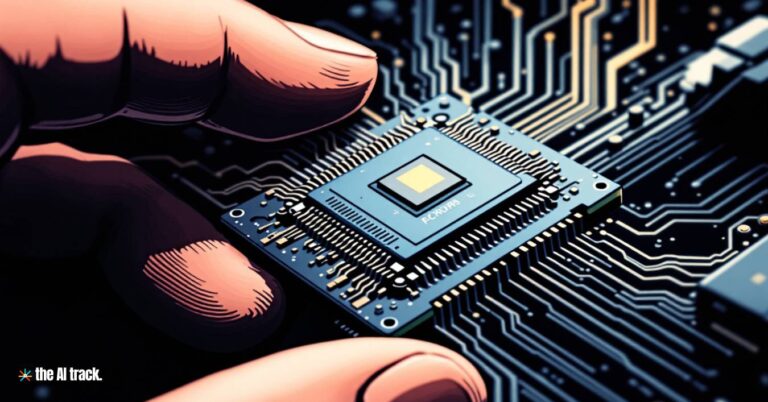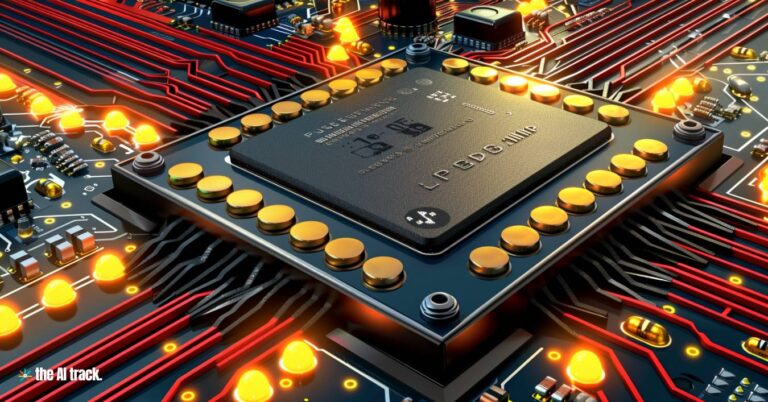Google’s ambitious hardware suite—Willow (quantum computing), Trillium (AI acceleration), and Axion (server CPUs)—marks a new era in high-performance computing. These chips are designed to tackle quantum, AI, and cloud infrastructure challenges by pushing boundaries in scalability, efficiency, and cost-effectiveness. Together, they form a strategic tech ecosystem that aims to revolutionize computing.

Trillium, Axion, and Willow – Key Points
Willow Quantum Chip: Pioneering Error Correction and Computational Supremacy
- Quantum Milestone:
- Willow features 105 qubits, achieving a 50% reduction in error rates for each increase in qubit groupings (such as expanding from 3×3 to 7×7 arrays).
- This chip can solve problems like Random Circuit Sampling (RCS) in under 5 minutes, a task that would take the world’s fastest supercomputer 10 septillion years to complete.
- Willow dramatically enhances coherence times, enabling qubits to maintain quantum states longer, improving performance twice as much as its predecessor, the Sycamore chip.
- Potential Applications:
- Early-stage applications focus on quantum simulations in fields such as drug discovery, battery design, and nuclear fusion. These domains benefit from the chip’s ability to tackle problems that are otherwise intractable with classical computing.
- However, large-scale commercial deployment remains years away due to challenges in scaling qubits and maintaining the required ultra-low temperatures close to absolute zero.
- Implications for Quantum Research:
- Hartmut Neven, Google’s Quantum AI founder, highlighted the “mind-bending” nature of Willow’s performance, claiming that its speed could potentially suggest quantum computing draws from “parallel universes”—a nod to multiverse theories.
- While the multiverse idea remains speculative, its mention underscores the unprecedented power Willow brings to quantum computing.
Trillium AI Chip: Redefining AI Economics and Scalability
- Performance Breakthrough:
- The 6th-generation TPU, Trillium, powers Google’s Gemini 2.0 AI model, delivering:
- 4x improvement in training performance.
- 3x increase in inference throughput.
- 67% boost in energy efficiency, addressing escalating power demands in AI training.
- A 100,000-chip network fabric creates a hyper-scalable AI supercomputer capable of training trillion-parameter models and beyond.
- Scaling efficiency of 99% for large distributed systems, ensuring near-linear performance gains.
- The 6th-generation TPU, Trillium, powers Google’s Gemini 2.0 AI model, delivering:
- Economic Edge:
- Trillium offers up to 2.5x better training performance per dollar and 1.4x better inference performance per dollar, transforming the cost landscape for AI startups and enterprises.
- AI21 Labs, an early adopter, reported substantial cost savings and speed improvements in developing large language models.
- AI Chip Wars:
- Positioned against Nvidia’s GPU dominance, Trillium’s tailored architecture excels in Mixture of Experts (MoE) models and other specialized workloads.
- Available exclusively on Google Cloud, Trillium strengthens Google’s competitive edge in the AI hardware market.
Axion Arm-Based Server CPU: A Threat to x86 Dominance
- Efficiency Revolution:
- Axion outperforms traditional x86 processors by offering 35% better performance, 60% improved price-performance, and 65% better power efficiency.
- This positions Axion as a significant challenger to Amazon’s Graviton and Microsoft’s Azure Arm CPUs, with Google aiming to capitalize on the growing adoption of Arm-based architectures in data centers.
- Market Adoption:
- With 22% of data centers expected to adopt Arm-based architectures by 2025, Axion is primed to disrupt the server CPU market, reducing the industry’s reliance on energy-intensive x86 processors.
- Key applications include Google’s internal cloud services, as well as external workloads for cloud customers that require enhanced efficiency and performance.
Strategic Positioning and Market Impact
Integrated High-Performance Ecosystem:
- Google’s portfolio now covers:
- Quantum innovation with Willow, pushing the boundaries of error correction and quantum supremacy.
- AI acceleration with Trillium, enabling enabling faster training, inference, and more cost-effective AI operations.
- Cloud efficiency with Axion, offering a more energy-efficient and affordable server solution for cloud computing.
- These developments strengthen Google Cloud’s position as a key player in competing against rivals such as AWS, Microsoft Azure, and Nvidia, providing a more cohesive, scalable solution across AI, quantum computing, and cloud infrastructure.
Market and Industry Impact:
- Alphabet’s stock surged 7% following the announcement, reflecting investor optimism regarding Google’s aggressive hardware strategy.
- Trillium’s exclusive availability on Google Cloud further enhances the company’s push to become the leader in AI hardware and cloud infrastructure, aligning with its goal to dominate AI innovation.
Challenges Ahead:
- Quantum Computing: Willow’s future success will depend on overcoming the scaling challenges that require millions of qubits and significant advancements in cooling technology and error correction to make quantum computing commercially viable.
- AI Hardware Market: While Trillium’s architecture offers impressive performance, its exclusivity to Google Cloud might limit its broader adoption, and entrenched competitors like Nvidia will continue to present a significant challenge.
- Server CPUs: Axion’s success depends on the broader industry acceptance of Arm-based processors, which will require significant shifts in server infrastructure and the overcoming of inertia in traditional x86 systems.
Why This Matters
Google’s strategic push into custom hardware marks a transformative shift in the computing industry. By addressing challenges in quantum error correction, AI scalability, and cloud efficiency, Google is not only advancing these fields but also positioning itself as a leader in next-generation computing infrastructure. These innovations could unlock transformative applications across sectors such as healthcare, energy, and AI, reshaping industries over the coming decades. As these technologies mature, they may revolutionize problem-solving approaches, making previously impossible tasks a reality and enabling new industries to emerge.
Sources
- Meet Willow, our state-of-the-art quantum chip | Google
- Google claims quantum computing milestone — but the tech can’t solve real-world problems yet | CNBC
- Google unveils ‘mind-boggling’ quantum computing chip | BBC
- Google reveals quantum computing chip with ‘breakthrough’ achievements | The Verge
- Google parent Alphabet jumps on quantum chip breakthrough | Reuters
Explore the vital role of AI chips in driving the AI revolution, from semiconductors to processors: key players, market dynamics, and future implications.
Read a comprehensive monthly roundup of the latest AI news!







